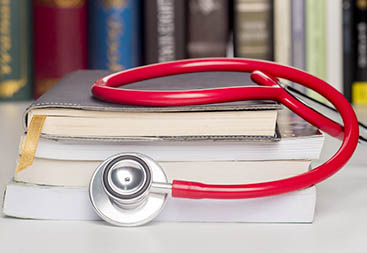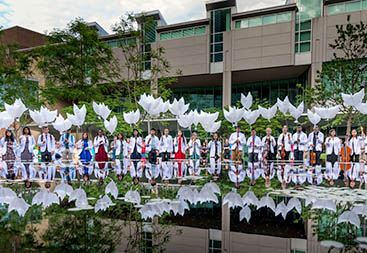Mini-Med School — In a class by itself
The 2020 spring session of Washington University School of Medicine’s Mini-Med School (MMS) is now open for registration. MMS is in its 21st year and is still considered one of St. Louis’ best kept secrets.
The extraordinary gift of donating your body to science
Have you ever considered donating your body to science? This selfless gift has far-reaching effects in helping medical students gain an in-depth understanding of the human anatomy — which is the absolute core of a medical education.
Diagnosing toxic exposures
Life can get toxic in the most unexpected ways. You can’t remember exactly when you started feeling sick, but a few years ago you had a metal-on-metal hip placement and you wonder if metal poisoning (metallosis) might be the cause of your recent symptoms.
A shot against cancer
Human papillomavirus (HPV) is one of the most common sexually transmitted diseases in the United States — causing many types of cancers in both women and men. The HPV vaccination has been shown to prevent these cancers and is now recommended for all preteens, girls and boys, starting around age 11 or 12.
Robotic surgery is down-sized for pediatric urology patients
St. Louis Children’s Hospital is one of only a few pediatric facilities in the country—and the only one in the St. Louis region—to offer robotic surgery for children needing urologic procedures.
Burns, not as easy as 1-2-3
You’ve just gotten a second degree burn. How do you know if you need to see a doctor?
Don’t let a sinus infection blow your day (or week)
Washington University sinus specialists can diagnose your sinusitis through a physical exam, evaluating your symptom history, and/or X-rays, a CT scan, MRI or a nasal endoscopy.
Everyone gets older … specialty primary care for the process of aging
Washington University Geriatric Care offers compassionate primary care for adults age 60 and older.
I’m too young to have a heart attack, aren’t I?
Today’s heart disease patient is surprisingly different – younger, obese, and quite possibly a woman. Many don’t even know they may be at risk for a heart attack or stroke. Why?
Helping your baby’s head take shape
The condition deformational plagiocephaly, which means asymmetrical head shape, is a result of repeated pressure to the same area of the head – it may be flat across the back or one side. What caused this and what do you do now?

